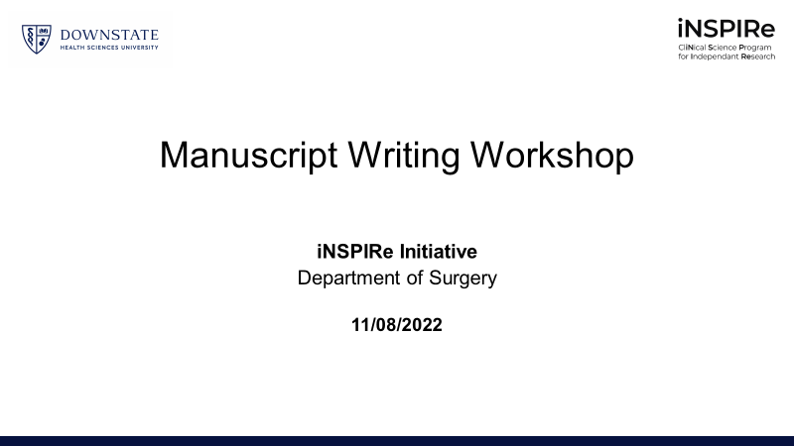iLab
iLab is a research center within iNSPIRe and the Department of Surgery that provides a supportive environment for clinically active residents to engage in surgical outcomes and health services research. It offers resources and mentorship to help busy residents develop their research skills while balancing their clinical responsibilities.
Key Features of iLab
Scientific Support. iLab provides access to epidemiological and biostatistical services, as well as data management assistance, to support research projects.
Multidisciplinary Approach. The center encourages collaboration across various surgical specialties and other disciplines, including Departments within the College of Medicine, School of Public Health, and College of Nursing.
Data Resources. iLab maintains a database library and secure servers equipped with statistical software, allowing residents to access and analyze large datasets while complying with regulatory requirements.
Mentorship. The center offers opportunities to engage with mentors who guide residents toward executing multi-year research plans that are designed to develop portfolios, build research skill sets, and potentially secure funding.
Sessions
iLab meets every one to two weeks (in person and virtually) during protected education time. Sessions are centered around brainstorming ideas, stress testing hypothesis and study designs, and driving progress in research projects that are mentored collaborations between groups of 3–5 residents, on average. Planned didactic learning include topics on epidemiological study designs, biostatistics, and evaluation of methodology and manuscripts.
Resources
Mastering Surgical Research | A Comprehensive Guide to Designing, Executing, and Communicating
Impactful Studies
| Surgical Research in a Fast-Changing World | The Process and Benefits of Refining a Research Question |
PMID: 39875303 |
| Conceptual Frameworks for Study Design and Team Building |
PMID: 39955251 |
| How to Deploy a Study | Key Building Blocks for Maximum Impact in Surgical Health Services Research |
PMID: 39893054 |
| The Art and Science of Interpretation and Dissemination | Data without Context is Meaningless |
PMID: 39855947 |
Other Resources
Manuscript Writing Workshop
Authorship Guidelines
Authorship has important academic, social, and financial implications. It confers credit and importantly, implies responsibility and accountability for published works.
The guidelines below ensure recognition of the work of contributors but also highlights the roles and responsibilities of those credited as authors.
The International Committee of Medical Journal Editors recommends that authorship is based on the following criteria:
- Substantial contributions to the conception or design of the work; or the acquisition, analysis, or interpretation of data for the work; AND
- Drafting the work or revising it critically for important intellectual content; AND
- Final approval of the version to be published; AND
- Agreement to be accountable for all aspects of the work in ensuring that questions related to the accuracy or integrity of any part of the work are appropriately investigated and resolved.
Acknowledgements: Contributors who meet fewer than all 4 of the above criteria for authorship should not be listed as authors, but they should be acknowledged.
IRB
Helpful External Sources
- Review the literature like a pro (courtesy of Johns Hopkins' Welch Medical Library)
